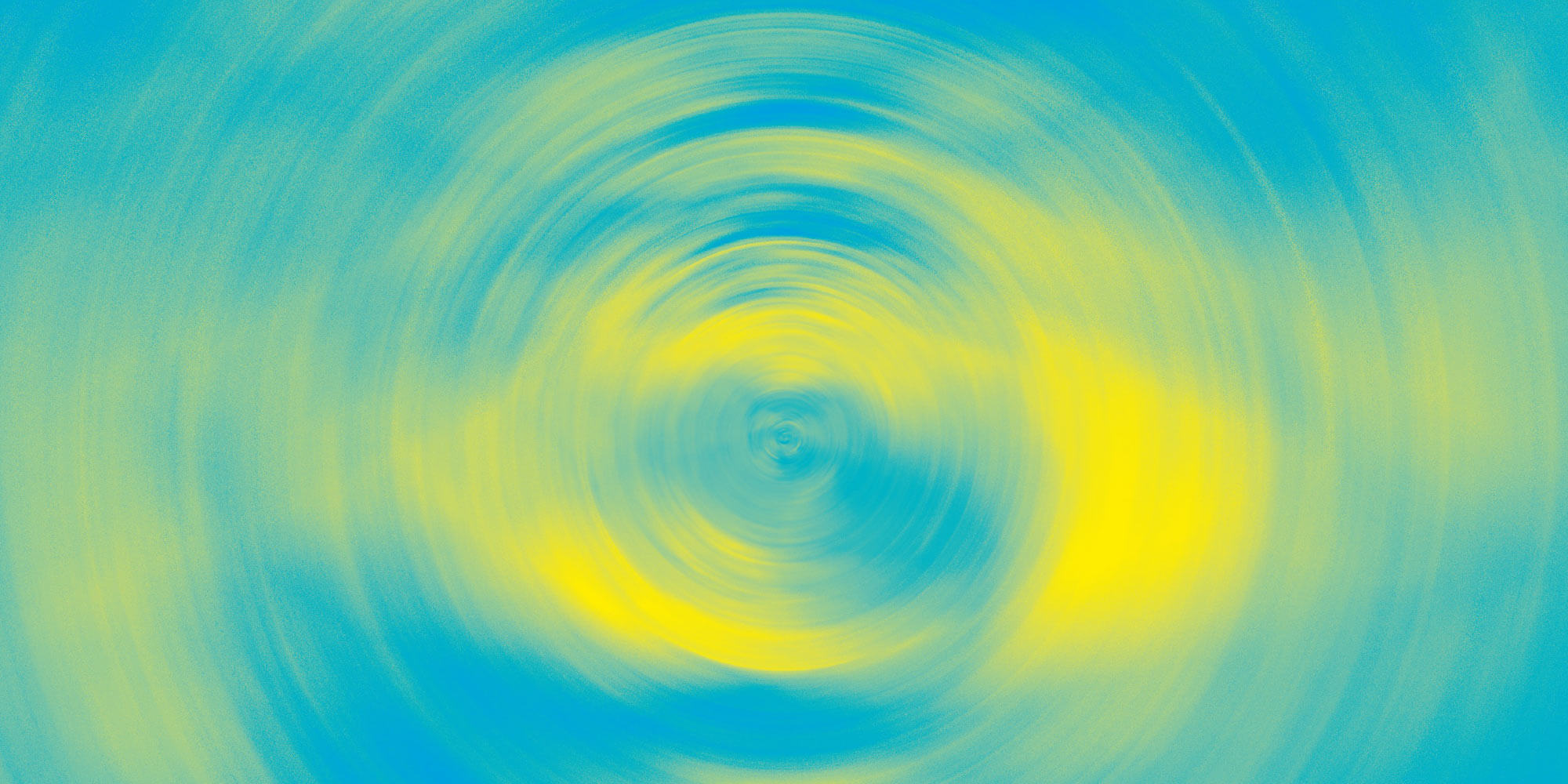Transformative design concepts for hybrid spaces
Taking the notion of “disruptive innovation” as a starting point, the Garden Vorarlberg is set out to challenge prevailing, techno-economically driven ideas of future development. What is defined as disruptive, depends on those orders and systems that are interrupted, disturbed or destroyed by disruption. But how can we disrupt by design in the sense of contributing to societal change towards more ecologically and socially sustainable lifestyles and forms of living?
The symposium is dedicated to discussing this question by drawing on spatiality as a field of intervention. It examines the zones of friction between public and private, absence and presence, invisibility and visibility as well as the potential of digital architectures interacting with physical spatial constellations and psychogeographies to enable the establishment of common spaces.
The first panel titled “Expanding Spaces – Disrupting Barriers” focuses on transgressing socio-cultural, spatial as well as technological barriers in the field of arts and cultural education. The second panel builds the frame to discuss and reflect on the approaches, findings, interventions and models developed throughout the Ars Electronica Festival week by viewing them through different theoretical lenses that provide the basis for developing a transdisciplinary approach to transformative design. The detailed schedule is provided on the website disruptit.fhv.at.
Video

Disruptivity by Design, Transformative design concepts for hybrid spaces, Margarita Köhl (AT) Angelika Simma-Wallinger (AT), Thomas Häusle (AT), Mira Löw & David Altweger (AT/ UK), Florian Ramsebner (AT), Marilena Tumler (AT), Roland Bernhard (AT), Mark Neuner (AT), Wolfgang Simma-Wallinger (AT), Philipp J. Ehmann (AT), Karin Bleiweiss (AT), Credit: Adobe Stock

Disruptivity by Design, Transformative design concepts for hybrid spaces, Margarita Köhl (AT) Angelika Simma-Wallinger (AT), Thomas Häusle (AT), Mira Löw & David Altweger (AT/ UK), Florian Ramsebner (AT), Marilena Tumler (AT), Roland Bernhard (AT), Mark Neuner (AT), Wolfgang Simma-Wallinger (AT), Philipp J. Ehmann (AT), Karin Bleiweiss (AT), Credit: Adobe Stock

Disruptivity by Design, Transformative design concepts for hybrid spaces, Margarita Köhl (AT) Angelika Simma-Wallinger (AT), Thomas Häusle (AT), Mira Löw & David Altweger (AT/ UK), Florian Ramsebner (AT), Marilena Tumler (AT), Roland Bernhard (AT), Mark Neuner (AT), Wolfgang Simma-Wallinger (AT), Philipp J. Ehmann (AT), Karin Bleiweiss (AT), Credit: Adobe Stock

Disruptivity by Design, Transformative design concepts for hybrid spaces, Margarita Köhl (AT) Angelika Simma-Wallinger (AT), Thomas Häusle (AT), Mira Löw & David Altweger (AT/ UK), Florian Ramsebner (AT), Marilena Tumler (AT), Roland Bernhard (AT), Mark Neuner (AT), Wolfgang Simma-Wallinger (AT), Philipp J. Ehmann (AT), Karin Bleiweiss (AT)

Disruptivity by Design, Transformative design concepts for hybrid spaces, Margarita Köhl (AT) Angelika Simma-Wallinger (AT), Thomas Häusle (AT), Mira Löw & David Altweger (AT/ UK), Florian Ramsebner (AT), Marilena Tumler (AT), Roland Bernhard (AT), Mark Neuner (AT), Wolfgang Simma-Wallinger (AT), Philipp J. Ehmann (AT), Karin Bleiweiss (AT), Credit: Adobe Stock
ZurückWeiter
Marilena Tumler: Marilena Tumle is currently completing her master’s degree in philosophy, psychology, history (MEd.) and ethics (MA) at the University of Vienna. In her master’s thesis she examines the use of mixed reality in history didactics. She recently completed an internship at the Dornbirn City Archives, where she was able to do a lot of research for her master’s project, in which she is creating a location-based mixed-reality app. In 2019 she gained a BA in philosophy, psychology and history.
Roland Bernhard: University Professor of History Didactics and Social History at the University of Vienna (winter semester: visiting professorship at the Institute of Economic and Social History; summer semester: substitute professorship at the Institute of History), 2019 Habilitation (Venia in Didactics of History and Political Education). 2018-2020: Visiting researcher at the University of Oxford, leading the funded project „Epistemic Beliefs of Austrian History Teachers (EBAHT)“ and the FWF project „School Quality and Teacher Education (SQTE)“: www.sqte.at; 2014-2018: post-doctoral researcher in the field of history didactics and civic education at the University of Salzburg and at the Salzburg University of Teacher Education (Central Office for History Didactics and Civic Education).
Karin Bleiweiss: Karin Bleiweiss is a research assistant at the Department of Design at the Vorarlberg University of Applied Sciences and is currently completing her MA studies where she focuses on inter-cultural mentoring relationships. Over the course of her career, she has gained a wide range of professional experience at the intersection of technology, innovation and design. Her research concentrates on inclusive design as well as social innovation.
Philipp J. Ehmann: Theater maker, dramaturge and transdisciplinary multimedia artist. Since his theater studies at the University of Exeter, he has been working with immersive and playful forms of theater and tries to make political issues accessible on different levels of experience, thus creating play spaces for safe experimentation and discussion. Ehmann is co-founder of play:vienna, Austria’s first initiative for playful art in public space.
David Altweger: Visual artist, director, designer and educator based in London and graduated from Camberwell College (UAL). Besides being a prolific director and creator of moving-image work and digital media, he is an established projection artist and composer. Working under the moniker Sagberg he creates interactive installations and reactive live visuals, collaborating with DJs and bands on live shows as well as providing digital projections for dance pieces, performances and exhibitions. He is associate lecturer for digital media at the Faculty of Arts and Creative Industries at Middlesex University. Since 2016 he has been a member of Test Dept, the UKs most influential industrial group.
Hanno Loewy studied literature, theater, film and television studies as well as cultural anthropology and received his doctorate from the University of Konstanz with a dissertation on the film theorist Béla Balázs. He developed parts of the permanent exhibition for the Jewish Museum Frankfurt/M. and the Jewish Museum Berlin. From 1990 to 2000 he built up (from 1995 as founding director) the Fritz Bauer Institute in Frankfurt/Main. He became head of the Department for Remembrance Culture and Reception Research in the same building until 2003. Since 2000 he has been a lecturer at the University of Konstanz in the field of literary studies/media studies. Since 2004 he has been director of the Jewish Museum Hohenems.
Mira Loew: Mira Löw began her journey as a photographer and filmmaker. After extensive travels through Asia, Loew went on to earn her BA in Fashion Photography at the London College of Fashion (2009), and finally an MA in Image and Communication from Goldsmiths, University of London (2011). Her body of work explores the relationship between human beauty, fragility and mortality; Spaces are in- habited, claimed, measured, negotiated and experienced through and with the body. In addition to her photographic practice, Loew also engages in collaborative processes with other artists, often participating in exchanges that are conducted over long periods of time and distances.
Mark Neuner: Since 2012, Mark Neuner has been realizing interdisciplinary architectural projects on various scales with his office Mostlikely Architecture. Mark Neuner uses his multi-faceted activities and experience for ongoing teaching activities, lectures and workshops at universities and architectural institutions. This is reinforced by ongoing jury work and consulting services. Mark Neuner’s office has been awarded several funding prizes and exhibited at architecture biennials.
Margarita Köhl: Transdisciplinary researcher and curator with a wide range of international experience in research and teaching (University of Vienna, Austria; National Kaohsiung University of Science and Technology, Taiwan; Silpakorn University, Thailand; Japan; Dokkyo Daigaku, Japan). Köhl holds a PhD in Communication Studies (University of Vienna) and an MA in Arts & Cultural Management, East Asian Studies and Art History. She works at the intersection of science and technology studies, East-Asian studies as well as arts & cultural management with a focus on affective and emotional aspects of technology appropriation and critical design. Currently, she is head of the Department of Design at the University of Applied Sciences Vorarlberg, Austria.
Angelika Simma-Wallinger: Angelika Simma-Wallinger studied Communication and Political Science at the University of Vienna (PhD) and Communication at the Danube University Krems. She has been working for ORF for more than 15 years. She is a radio journalist at Ö3, moderates the children’s news on television, conceives and conducts an audience-interactive discussion format on ORFeins and eventually becomes the office manager in the television directorate. In 2015, the year in which people fled to Europe from the war in Syria, she moved from the media company to Caritas, where she oversaw the Austrian-wide communication. Since 2019, she is a university teacher at the InterMedia degree program at the FH Vorarlberg.
Wolfgang Simma-Wallinger: Digital Product Manager at CREE Buildings. Trained as an architect, he has worked in Vienna, London and Rome at the intersection of experience, space and digitalization. In his work as an architect and curator, he always keeps an eye on the intersections between science, technology, art and design in order to develop contemporary, global projects from this perspective. For CREE Buildings, he combines his expertise in architectural practice, academic research, innovation and industrial thinking in the development of the CREE LifeCycle platform and additional digital products that support all stakeholders in the construction industry. The aim here is to create a positive impact on the built environment by using the latest building technologies in the spirit of planet-centered design.
Thomas Häusle is director Art Space Dornbirn.
Credits
In cooperation with Vorarlberg Museum (AT)







